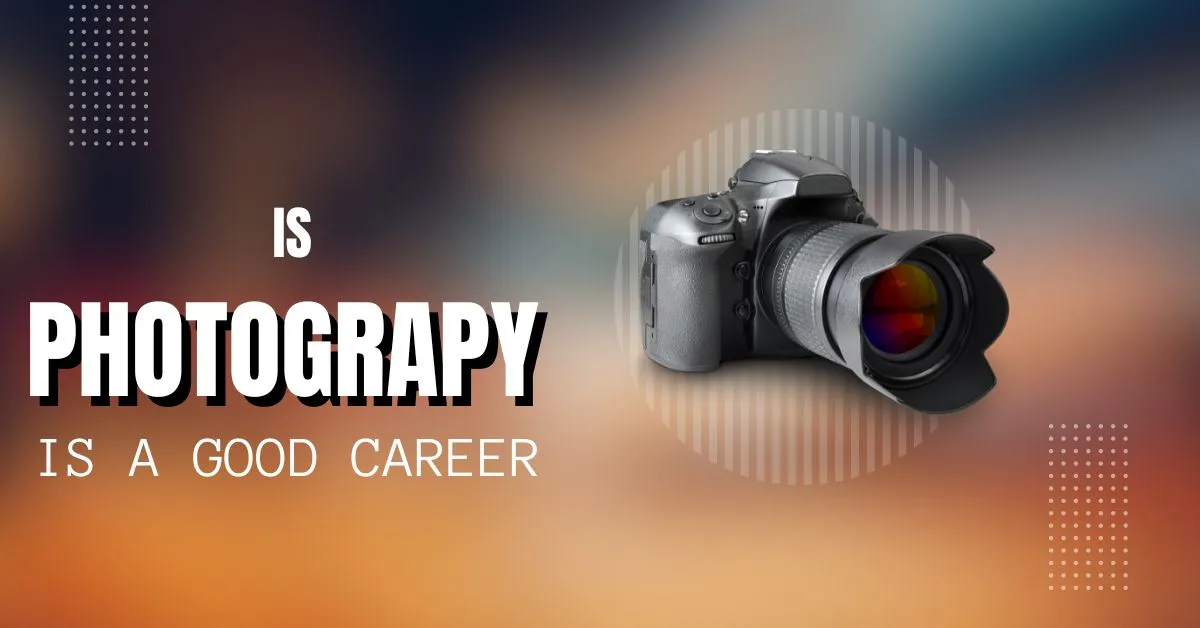
Is Photographer a Good Career?
Introduction
Have you ever seen a stunning photograph and wanted to capture such moments? Is Photographer a Good Career isn’t just about snapping pictures; it’s about storytelling, capturing emotions, and preserving memories. But is it a viable career choice? Let’s delve into the world of photography to understand if it’s the right path for you.
Understanding the Role of a Photographer
What Does a Photographer Do?
Photographers are visual storytellers. They use their cameras to capture moments that tell a story or convey a message.
Types of Photography
Photography is a diverse field with various niches:
- Portrait Photography: Capturing the essence of individuals or groups.
- Landscape Photography: Showcasing natural or urban environments.
- Commercial Photography: Creating images for business purposes.
- Event Photography: Documenting events like weddings or concerts.
- Editorial Photography: Illustrating stories for magazines or newspapers.
Daily Responsibilities
A photographer’s day-to-day activities include planning shoots, setting up equipment, Is Photographer a Good Career, and meeting with clients. They blend technical work with creative brainstorming.
Pros of Being a Photographer
Creative Freedom
Photography allows you to express your creativity. You can experiment with different styles, techniques, and subjects to create unique images.
Flexible Schedule
Many photographers enjoy the flexibility of their work schedules. Unlike a traditional 9-to-5 job, photographers can often choose when and where they work.
Opportunities for Travel
For those who love to travel, photography can open doors to exploring new places and cultures. Travel photographers get to see the world through their lenses.
Meeting New People
Photographers often work with diverse clients and subjects, Is Photographer a Good Career means constantly meeting new and interesting people.
Financial Potential
While it can be initially challenging, successful photographers can earn a good income, especially those who build a solid client base or gain recognition in their field.
Cons of Being a Photographer
Irregular Income
One of the biggest challenges is the inconsistency in earnings. Income can vary significantly depending on the season and client demand.
Expensive Equipment
Investing in high-quality equipment is essential but can be very costly. Cameras, lenses, lighting, and editing software all require substantial investment.
High Competition
The field is highly competitive, with many aspiring photographers seeking the same opportunities. Standing out requires dedication and unique skills.
Physical Demands
Photography can be physically demanding. It requires long hours of standing, carrying heavy equipment, and sometimes working in challenging environments.
Skills Needed for a Successful Photography Career
Technical Skills
Understanding how to use your camera and related equipment is fundamental. Knowledge of lighting, composition, and editing software is crucial.
Creativity
A good photographer needs a keen eye for detail and the ability to see beauty in the mundane. Creativity is what sets extraordinary photographers apart.
Business Acumen
Successful photographers often run their businesses. This means understanding marketing, client management, and financial planning.
Interpersonal Skills
Working with clients, models, or other professionals requires good communication and people skills. Building a rapport with subjects can lead to better photographs.
Education and Training
Formal Education
While a formal degree is only sometimes necessary, many photographers benefit from studying photography or a related field. This provides a solid foundation in technical skills and artistic principles.
Self-Teaching and Online Resources
The internet is a treasure trove of tutorials, courses, and communities. Many successful photographers are self-taught, using online resources to hone their skills.
Workshops and Internships
Hands-on experience is invaluable. Workshops and internships offer practical learning opportunities and can help you build a network in the industry.
Building a Photography Portfolio
Importance of a Strong Portfolio
Your portfolio is your visual resume. You must showcase your best work to attract potential clients or employers.
Showcasing Diversity in Work
A diverse portfolio demonstrates versatility. Include a range of styles and subjects to show your ability to adapt to different photography needs.
Online Portfolios and Social Media
Having an online presence is crucial. Websites and social media platforms like Instagram can help you reach a wider audience and attract clients.
Marketing Yourself as a Photographer
Branding
Creating a strong personal brand helps you stand out. This includes a consistent style, a professional website, and a recognizable logo.
Networking
Building relationships within the industry can lead to referrals and opportunities. Attend industry events, join photography groups, and connect with other professionals.
Online Presence
Maintain an active online presence. Update your portfolio regularly, blog about your work, and engage with your audience on social media.
Client Relationships
Good client relationships lead to repeat business and referrals. Be professional, reliable, and communicative to ensure client satisfaction.
The Financial Aspect of a Photography Career
Average Earnings
Earnings can vary widely based on experience, location, and specialization. According to various sources, the average annual salary for a photographer ranges from $30,000 to $70,000.
Diversifying Income Streams
Many photographers diversify their income by offering different services, selling prints, conducting workshops, or licensing photos.
Managing Expenses
Keeping track of expenses is crucial. This includes equipment maintenance, travel costs, marketing expenses, and insurance.
Balancing Passion and Profession
Maintaining Creativity
Keeping your creative juices flowing is essential to avoid becoming stagnant. Experiment with personal projects and new techniques.
Avoiding Burnout
Balancing work and personal life is key to avoiding burnout. Take breaks, set boundaries, and ensure you have time to recharge.
Future of Photography as a Career
Technological Advancements
The photography industry is continually evolving with new technology. Staying updated with the latest advancements, like AI in editing software, is essential.
Evolving Trends
Trends in photography change over time. Staying aware of industry trends can help you stay relevant and in demand.
Adapting to Change
Being adaptable is crucial. Whether it’s new technology, market demands, or creative trends, the ability to evolve is vital for long-term success.
Conclusion
Photography can be a fulfilling and lucrative career for those passionate about capturing the world through their lens. It offers creative freedom, flexibility, and opportunities for travel. However, it also comes with challenges like irregular income and high competition. This field requires technical skills, creativity, business acumen, and perseverance. A photography career can be incredibly rewarding if you’re willing to put in the effort and continuously learn and adapt.



